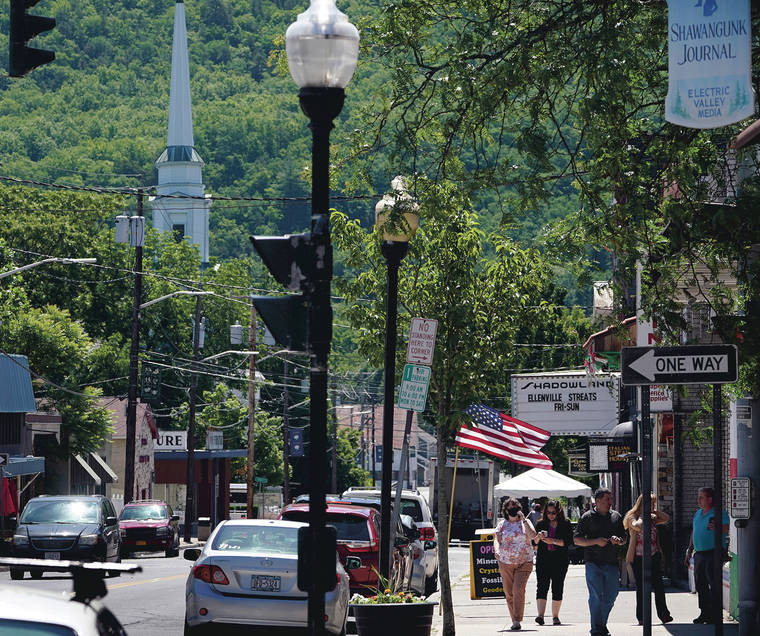Annette Steele isn’t destitute or unemployed. But for a year she’ll be receiving $500 per month in no-strings-attached payments as part of an experimental universal basic income program in upstate New York.
Places from Compton, California, to Richmond, Virginia, are trying out guaranteed income programs, which gained more attention after the pandemic idled millions of workers. Steele, a special education school aide, is getting her payments through a program in Ulster County, which covers parts of the Catskill Mountains and the Hudson River Valley.
During the pilot program, funded by private donations, 100 county residents making less than $46,900 annually will get $500 a month for a year. The income threshold was based on 80% of the county’s average median income, meaning it includes both the poor and a slice of the middle class — people who face financial stress but might not ordinarily qualify for government aid based on income. For researchers, the pilot could give them a fuller picture of what happens when a range of people are sent payments that guarantee a basic living.
For Steele, 57, it’s a welcome financial boost that helped her pay for car insurance and groceries.
“It lessens my bills,” said Steele, who lives in the village of Ellenville with her retired husband.
Less than 100 miles north of New York City, Ulster County is a popular destination for weekenders headed to Woodstock or the Catskill Mountains. Its big city, Kingston, is small, with 23,000 people.
“Showing that this approach will work not just in urban areas, but for rural parts of the country — which we know is one of our big national problems — I think there’s great opportunity there,” said Ulster County Executive Patrick Ryan.
Ryan saw cash payments as a way to help local families struggling to get ahead, or even get by, as the pandemic ebbs. Many people in the county were already stretched thin by housing costs before the pandemic, when a large influx of New York City residents led to skyrocketing real estate prices, he said.
The first payments were made in mid-May. Recipients of the money can spend it as they wish, but will be asked to participate in periodic surveys about their physical health, mental health and employment status.
The Center for Guaranteed Income Research at the University of Pennsylvania, which the school formed with the Mayors for a Guaranteed Income, is evaluating the pilot program.
Recipient Eric Luna, a 26-year-old electrical lab technician, said the money will help pay the bills at the home he recently helped his parents buy in Wallkill. But he also hopes to set some aside, possibly for a master’s degree.
“I’m also learning how to save money as well,” he said. “So this will be a learning experience.”



